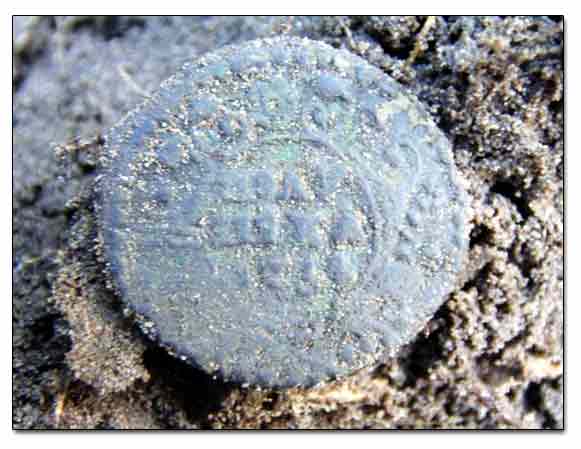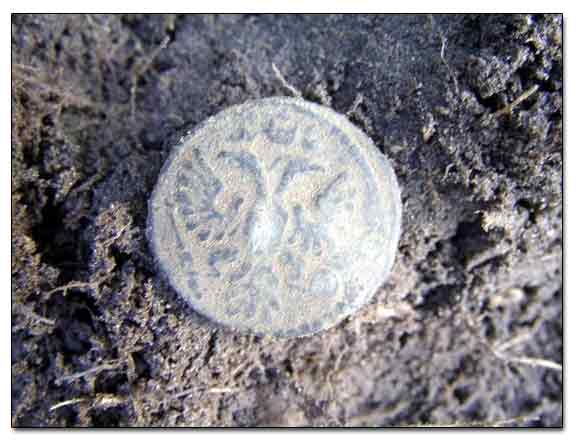Coin Shooting Fun at Virgin Site, page 13
Rescanning The Search Area With A Coil Of A Different Size Always Pays Off
One More Thin Brass Late-Medieval Coin Came Out.
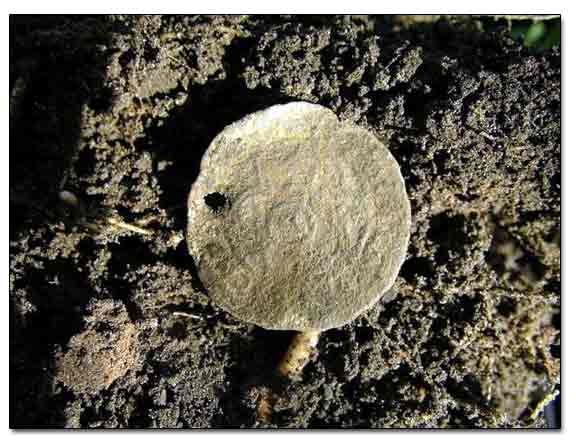
Later I received an e-mail from Steve in the UK who provided me with the following info on this type of coins: "We find plenty of these in the UK and they are what we call Jettons. Not actual currency as such but supposedly medieval merchants counters. Usually they were minted in Hans Krauwinckle or Nuremburg. They date from 15th - 16th century."
Finally, I received a silver coin signal and dug up a Soviet 1925 15 Kopeks coin. Too bad it was not... 200 years older.
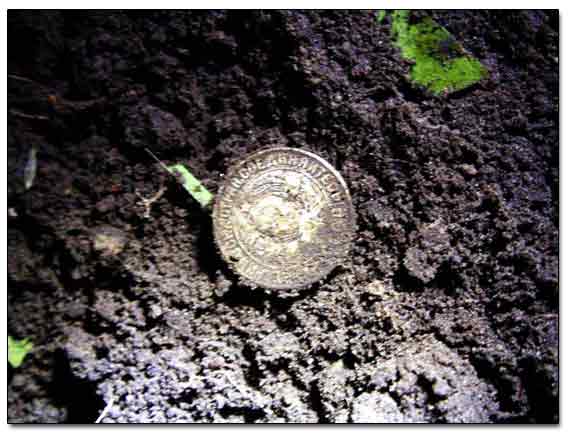
By this time, Tahhir had recovered many coins as well. We both were so excited that we did not even feel being tired a bit. As usual I was fascinated about the energy and enthusiasm that we still had at the end of our lucky treasure hunting day. Once again, great results boosted our mental strength which, in its turn, reinforced our physical ability!
Around midnight, we had to stop and go home. Tomorrow was our last metal detecting day and we planned to have an early start. I was hoping there was enough time to recharge the batteries.
When we returned to the site in the early morning, I asked Tahhir if he could remember the exact spot where he recovered two silver coins a year ago. He pointed out to two spots that were right in the middle of thick and tall grass... To me it seemed like "Houston, we've got a problem..."
Using a scythe was out of question. A simple weed-whacker was not available due to its high cost in Russia, i.e. no one in the village would have it. Suddenly I got an idea which would be a simple solution to the grass problem: one would walk backwards in small steps while swinging the search coil over flattened grass. There would still be some depth loss, but it was better than nothing. We began to metal detect while walking backwards, and it became a second nature to us in an hour.
Tahhir Was Using My Newly Invented Method
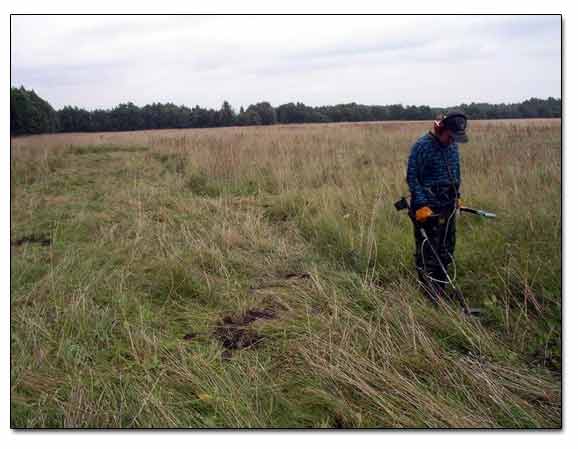
As soon as we shifted our activity to this tough spot, the 18th century coins began popping out. I was pleased to recover a 1728 1 Kopeck (1/100 of a Rouble), a rare coin, in nice condition. I only wished the coin did not have a hole.
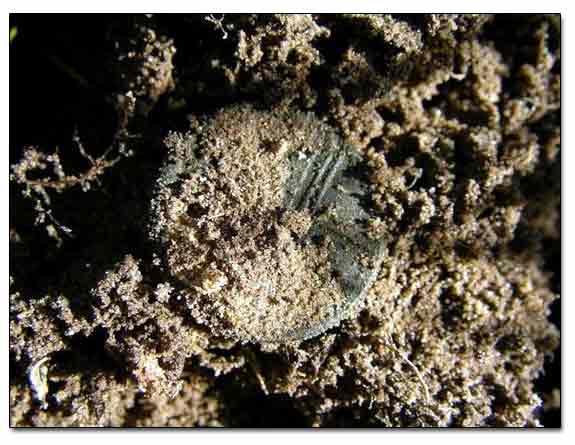
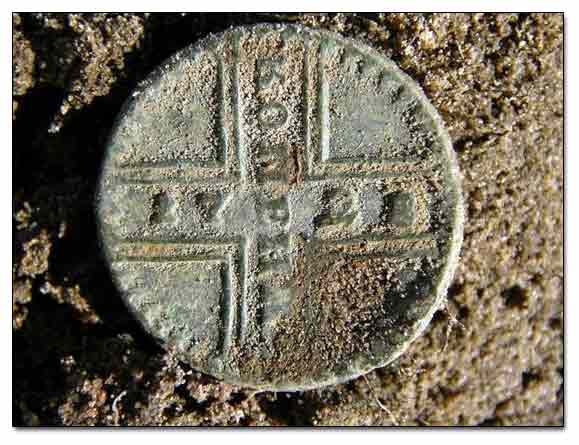
Then more coins from the early 1700s came out.
1737 1 Polushka
